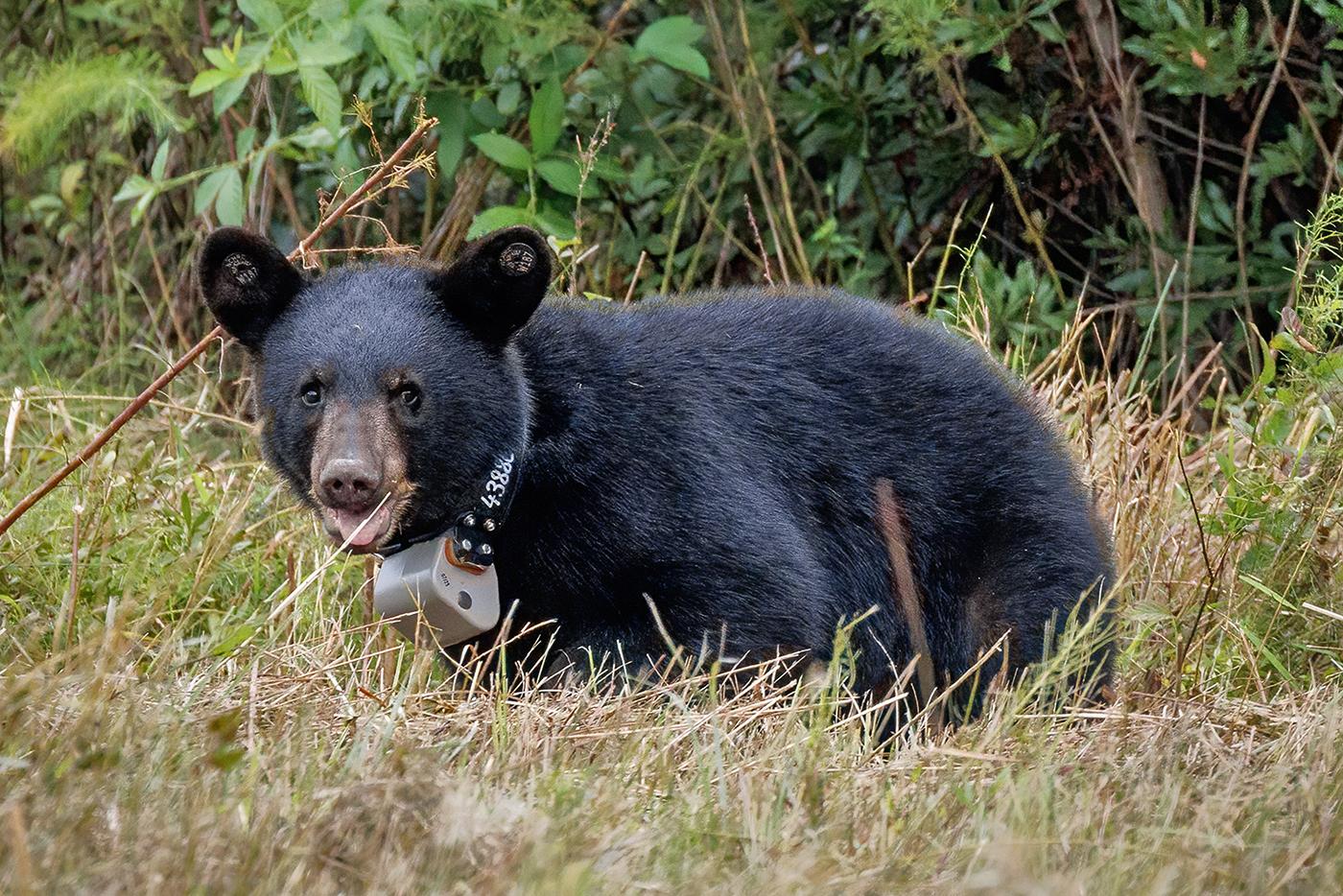The N.C. Wildlife Resources Commission (NCWRC) recently released twelve rehabilitated black bear cubs back to the wild, with four of them coming from the coastal region and eight from the mountains.
NCWRC has been overseeing the rehabilitation and release of orphaned black bear cubs since 1976 through the agency’s cub rehabilitation program one of the first in the country. When the program first began, cubs were released to supplement population numbers with the goal to increase and restore the bear population. While black bear populations in North Carolina have been restored, the rehabilitation of orphaned bear cubs has continued to ensure these cubs have the best chance of success once they are returned to the wild.
NCWRC receives orphaned cubs beginning in late January, with most arriving April through June after female bears have emerged from their dens with their cubs. The cubs are placed with one of two licensed wildlife rehabilitators that are experienced and trained in black bear cub rehabilitation: The Wildlife Rehabilitation Center at the North Carolina Zoo and Appalachian Wildlife Refuge. The rehabilitators provide expert care and specialized food, with limited to no human interaction, until the bear cubs are about 7 to 8 months old.
Some of the cubs are outfitted with tracking collars when they are released so NCWRC biologists can monitor their movements so and learn more about their actions post-release. One example occurred following Hurricane Helene in September 2024. Five cubs with tracking collars had been released prior to the storm. All five survived, and NCWRC received no reports of the released cubs causing conflicts with people. All cubs settled down during the storm, became active again days later and went on to find suitable den sites for hibernation. The tracking collars are designed to stay on the cubs until the following April; at that time, a timer on the collar causes it to drop off the cub.
Biologists release cubs in early fall due to the availability of natural fall foods (e.g., acorns, fruits and berries). Because the bear cubs’ first few days in the wild may be initially disorienting, they are released at heavier than average weights compared to their wild counterparts so that they have plenty of fat to burn until they can orient themselves to the area. Research has shown that limiting the amount of time that orphaned cubs remain in captivity, combined with maximizing weight at releases, greatly improves the outcomes for these cubs to be successful back in the wild.
Bear cubs are released on state-managed lands at sites reasonably far from human development in the region where they were originally found (Mountains or Coastal Plain).
NCWRC wildlife biologists advise that a bear cub seen alone is rarely orphaned. Often the mother bear is nearby foraging for food and will return within a few hours. Remaining in the area or attempting to catch the cub could inadvertently separate it from its mother and possibly injure the cub.
“People who try to capture or handle a cub are not only risking the cub’s safety, but their own if the mother bear is nearby, as she may try to defend her cubs,” said Black Bear Biologist Jenna Malzahn. “By trying to capture a bear cub, you may cause it to become orphaned, injured or both.”
By fall, calls to the agency’s Wildlife Helpline about suspected orphaned bear cubs decline and are replaced by inquiries concerning bears denning in urban areas. If a healthy cub is orphaned in late summer or early fall, it is old enough to be self-sufficient, as shown by the successful release of rehabilitated black bear cubs at this same time of year.
BearWise® Basics offers proven methods to cohabitate with bears. Visit the NCWRC blog to learn more about the black bear cub rehabilitation program and the agency’s webpage for information on bear denning.
Watch National Geographic’s “Secrets of The Zoo: North Carolina” episode featuring North Carolina’s bear cub rehab program.

